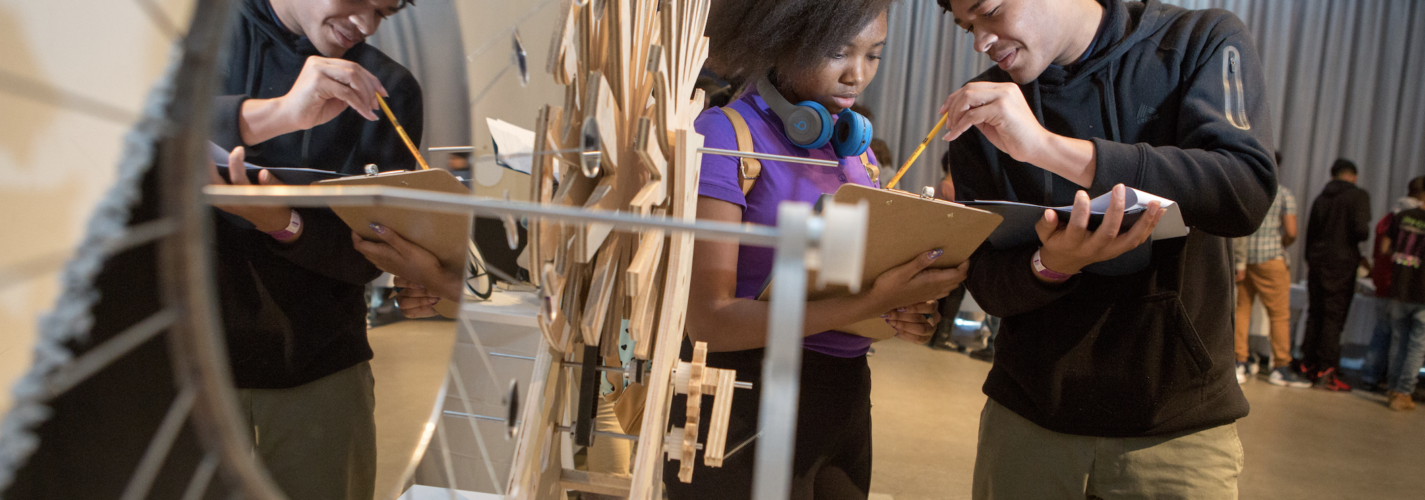April 2021 Research Rundown
By Krista Kaput
Welcome to EdAllies’ April Research Rundown: our curated list of recent, relevant research we think is worth adding to the education equity conversation. This month, we are sharing studies on:
- The impact of summer learning on math achievement,
- Student and educator perspectives on student mental health, and
- The impact of police officers in schools.
1. The Impact of Summer Learning Programs on Low-Income Children’s Mathematics Achievement: A Meta-Analysis
Annenberg Institute at Brown University, April 2021
A meta-analysis of 37 studies of K-12 summer math programs found that students who participated had significant improvement in math and social-emotional outcomes. The researchers found a positive impact for students who were in both high and low-poverty settings. The authors conclude by noting that, in the current policy context, summer programming may be an effective way to mitigate learning loss that was incurred during COVID-19 school closures, and help students get back on track for long-term recovery.
WHY THIS MATTERS IN MINNESOTA
There is a growing list of studies that show that learning loss due to COVID-19 is something that we cannot ignore—and Minnesota must work to quickly ramp up programs to support academic recovery. Both the Senate and House education omnibus bills have provisions to provide funding for Minnesota math corps and early childhood literacy programs. And last month, President Biden signed the American Rescue Plan Act of 2021 (ARP), which will send $1.3 billion to Minnesota’s schools and the Department of Education (MDE). ARP requires MDE to use some of their money for summer enrichment and learning programs, and districts must use at least 20% of their funds for addressing learning loss. These funds are in addition to the two previous stimulus bills, some of which Governor Walz has said will be used for summer programming. As MDE and districts are planning for the summer, it’s imperative that they collaborate with families, students, and educators to ensure they are balancing immediate and long-term needs.
Read the full analysis
2. Student Mental Health During the Pandemic: Educator and Teen Perspectives
Education Week, March 2021
A nationally representative survey of 2,000 high school students examined students’ views on a wide range of issues connected to mental health, including their experiences, problems, and relationships. More than 70% of students—and more than 75% of Black and Latino students—indicated that they were having more issues in school than before the pandemic, with students who were in distance or hybrid indicating that they were having more challenges than students in-person. The researchers also compared their findings with surveys on how teachers are interpreting their students’ well-being and found significant gaps in what they reported as going either well or poorly. About two-thirds of teachers indicated that their students’ state of mind was more negative than before the pandemic, while only 37% of students said that they felt that way. Furthermore, 86% of principals said that their schools offered more mental health supports, whereas only two-thirds of students agreed.
WHY THIS MATTERS IN MINNESOTA
When we talk about COVID-19 recovery, it’s critical to focus on both academic acceleration and support for social-emotional health. As schools receive their ARP funds, they should make sure that they are including families, students, and educators in their decision-making to ensure this is done effectively, and not solely based on pre-pandemic needs or educator assumptions about student needs. EdAllies has been working with a coalition that has been advocating to ensure that Commissioner Mueller uses state ARP dollars to invest in targeted and culturally responsive mental health support, early literacy programs, and support for students with disabilities and English Learners.
Explore the survey
FROM THE ARCHIVES:
3. Making Schools Safer and/or Escalating Disciplinary Response: A Study of Police Officers in North Carolina Schools
Educational Evaluation and Policy Analysis, May 2020
A 2020 study used disciplinary, academic, juvenile justice, and adult conviction data from North Carolina to estimate the effects that school resource officers (SROs) had in middle schools. Looking at both short and long-term outcomes in educational attainment and the adult criminal justice system, the researchers found that while SROs reduce the incidence of serious violence on school grounds, other outcomes are neutral or negative. They have no effect on weapon, drug, or alcohol offenses, and SRO presence substantially increases the use of out-of-school suspensions for Latino and Black students, as well as the use of transfers to alternative schools and expulsions for Black students and the number of overall referrals to law enforcement. These findings can help districts determine how to evaluate and structure alternatives to SROs.
WHY THIS MATTERS IN MINNESOTA
This study highlights the importance of supporting students and understanding how school policies contribute to the school-to-prison pipeline. There must be intentional and collaborative work done between youth, families, and educators to create environments that are student-centered. For example, after Minneapolis and Saint Paul Public Schools ended their SRO contracts, they received backlash for who they hired in their stead—indicating that there is more work to do to build an effective student-centered approach.
But SROs are only one part of a larger school-to-prison pipeline system, which has resulted in students of color, Indigenous students, and students with disabilities being disproportionately suspended and expelled. This year, Minnesota House and Senate are considering expanding on a prekindergarten ban on suspensions —which was passed last session—by now requiring it to be from prekindergarten through third grade. There are also other impactful proposals on the table, looking at nonexclusionary discipline practices, parental notification rights, and guidance for schools on restorative discipline practices.
Read the study

